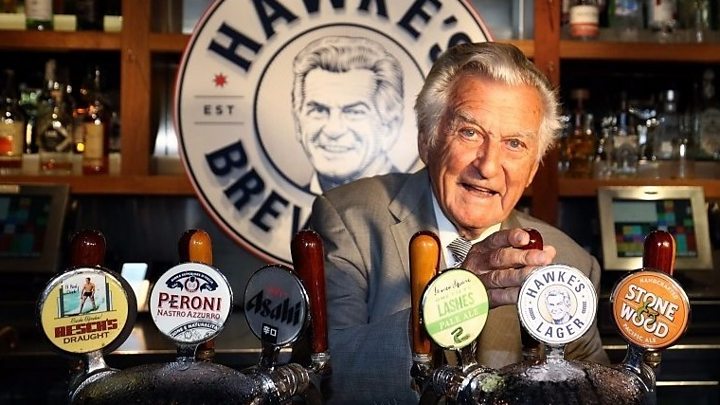MELBOURNE (Reuters) - Rare earth developers in Australia say they are edging closer to signing deals with new customers that would drive forward their projects amid mounting global supply concerns over the minerals that are crucial to high-tech industries.
FILE PHOTO: Rare earths dug up and processed into concentrate at Mount Weld in Western Australia, are pictured after being shipped to the Lynas plant in Gebeng, Malaysia, July 3, 2014. REUTERS/Sonali Paul
Australia contains only 2.8% of the world’s rare earth reserves, according to the United States Geological Survey. However, the country accounts for more than half of the new projects in the global pipeline, according to data compiled by the Western Australian School of Mines (WASM) at Curtin University.
Rare earths are a group of 17 minerals critical to a wide array of industries from high-tech consumer electronics to electric vehicles and sophisticated military equipment.
Most of Australia’s projects, however, have been stuck as developers struggle to secure financing because of the domination of China, which accounts for about 90% of global rare earths processing capacity and one-quarter of the world’s reserves.
Even the projects closest to start-up are unlikely to begin operations until 2023 at the earliest, the WASM data shows.
Still, those projects may speed up amid the escalating trade war between the United States and China. The United States imports 80% of its rare earths from China, where state-owned news outlets have reported it could cut its shipments to the U.S. as part of the dispute.
Northern Minerals, which is developing the Browns Range project in Australia’s northwest, said last week that it was in “discussions with an internationally recognized industrial group” for supply.
“The level of interest has increased since the increased news focus on the issue,” a company spokesman said this week.
Hastings Technology, which is readying its Yangibana rare earths project in Western Australia for late 2021 production already has one preliminary supply agreement with Germany’s Thyssenkrupp and signed another with automotive supplier Schaeffler AG last week.
“We are working on another German supply agreement which we expect to tie up this year,” said Charles Lew, Hastings’ executive chairman.
Additionally, Hastings is receiving financing from Germany’s strategic minerals procurement body, he said.
(For a graphic on 'Rare earth production' click tmsnrt.rs/2I4ixHG)
The prospects for Australia’s rare earths industry are picking up based on growing demand expectations.
The U.S. said this week it would look to Australia and Canada to develop rare earths reserves around the world to reduce the global reliance on China.
A Thyssenkrupp spokesman said last week that “in the area of rare earths we are regularly on the lookout for new partners to serve the growing global demand.”
The reason rare earths projects outside of China have not advanced is because China’s vast production, underpinned by cheaper labor and less stringent environmental regulations, means no one else can compete on cost, said WASM Professor Dudley Kingsnorth.
Australia’s Lynas Corp, the world’s only rare earths producer outside of China, has been supported by low interest loans from Japan’s government. Last month Lynas outlined expansion plans including building a U.S. processing plant.
Kingsnorth estimates the world will need 75,000 tonnes of rare earths per year to be independent of China by 2025. However, his projections are that the rest of the world will only be producing 50,000 tonnes independent of China by that time.
End-users are not willing to invest in mines that are years away from production and more costly than in China, he said.
However, companies are not pricing in the risk of a politically driven supply disruption, he said.
“It’s not about being competitive with China, it’s do you get your metals or not?” said Kingsnorth.
(For a graphic on 'Rare earth export markets perk up after China rattles trade warsaber' click tmsnrt.rs/2XdxeS8)
Without government support, most new projects will struggle to see the light of day, said a resource companies analyst who declined to be named because of company policy.
Especially if companies are planning to build processing plants, the cost of which can be an order of magnitude more than the value of the companies building them, he said.
For example, Australian rare earths miner Arafura Resources, a company with a market capitalization of A$77 million ($53.24 million), is seeking to secure $1 billion in funding for its project that includes a processing plant.
Arafura and fellow miner Alkane Resources met with U.S. defense officials as part of an Australian trade delegation in February but returned empty handed, executives from both companies said.
“The conundrum that’s occurring is do or don’t people wish to put money on the ground to pay higher costs to mitigate risk?” said Alkane’s Managing Director Nick Earner.
Reporting by Melanie Burton in MELBOURNE. Additional reporting by Yuka Obayashi in TOKYO and Christoph Steitz in FRANKFURT; editing by Christian Schmollinger
https://www.reuters.com/article/us-usa-trade-rareearths-australia/australian-rare-earth-miners-push-development-deals-to-counter-china-grip-idUSKCN1TF0LO
2019-06-14 06:51:00Z
CAIiEDsQwwfCS5l9K4Qi5SCLQdMqFQgEKg0IACoGCAowt6AMMLAmMJSCDg
